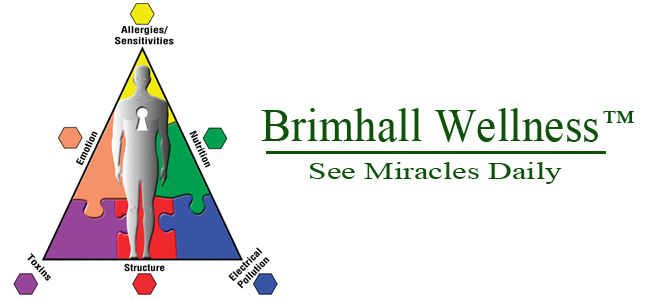
Your Heart, Mitochondria, Energy Levels and Fat Reduction
June 7, 2021 Puzzle Piece
Carnitine
has been studied extensively because it is important to energy
production and is a well-tolerated and generally safe therapeutic agent.
Researchers prefer acetyl-L-carnitine because it is better absorbed in
the small intestine than other forms, and more efficiently crosses the
blood-brain barrier.
Carnitine is found in almost every cell in the body and plays a critical
role in energy production by transporting fatty acids to mitochondria,
where they are converted to energy. Carnitine also plays a role in
helping remove toxins from cells.
You mainly find dietary carnitine in meat, fish, poultry and dairy,
especially red meat. For vegetarians and those who avoid red meat, along
with those genetically predisposed to not using certain fats for
energy, it can be easy to become deficient in carnitine. There are also
pre-existing health conditions that can create dysfunction:
- Liver disease
- Kidney disease, especially with dialysis
- Digestive disease that causes poor absorption
- Malnutrition
- Mitochondrial disease
- Certain metabolic disorders
- Certain medicines, such as valproate
Ultimately, a deficiency leads to a condition where nutrients cannot
reach your body’s cells, causing weakness and potentially heart and
liver problems. Consider Essential L-Carnitine, formulated by Marc Harris, MD, ND, PhD 3.
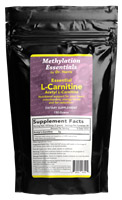
Signs of a Carnitine Deficiency
- Decreased, poor muscle tone or muscle weakness
- Tiredness (fatigue)
- Irritability
- Inability to lose body fat
L-Carnitine and Your Heart
Cardiovascular disease is a leading cause of deaths worldwide,
accounting for 15-17% of healthcare costs. Current records estimate an
annual global average of 30 million cardiac dysfunction cases, and
experts anticipate that number to rise over the next 3 decades.
Studies show that L-carnitine improves the transport of long-chain
fatty acids into the mitochondrial matrix, triggering cardioprotective
effects through reduced oxidative stress, inflammation, and cell death.
Carnitine deficiency results in a reduced oxidation (breakdown) of
fatty acids and therefore, reduced energy (ATP) production. Also
consider Opti-Heart for further heart support.
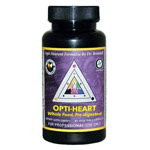
“Carnitines have an essential role in the regulation of mitochondrial
function and recent studies both in animal models and human subjects
have emphasized the importance of mitochondrial function in regulating
NO* signaling,” said researchers from the 2009 study on “Carnitine
homeostasis, mitochondrial function, and cardiovascular disease.” *NO
stands for nitric oxide, a key molecule for blood vessel flexibility and
blood flow. Consider for further nutritional support Optimal Opti-BFF.
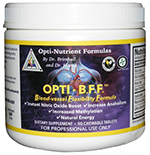
A weakened heart will not be able to pump blood as well. This can lead
to symptoms such as swelling and shortness of breath. Untreated heart
weakness may lead to death early in life.
Several studies have examined the effectiveness of supplemental
carnitine in the management of cardiac ischemia (restriction of blood
flow to the heart) and peripheral arterial disease (whose most important
symptom is poor circulation in the legs, known as intermittent
claudication). Because levels of carnitine are low in the failing heart
muscle, supplemental amounts might counteract the toxic effects of free
fatty acids and improve carbohydrate metabolism.
L-Carnitine and Your Mitochondria
Mitochondria are the energy factories of every cell in your body. If they slow down, you slow down.
A decline in mitochondrial function is thought to contribute to the
aging process. Carnitine may be involved because its concentration in
tissues declines with age, which deteriorates the mitochondrial
membrane. Carnitines are involved in mitochondrial transport of fatty
acids and are of critical importance for maintaining normal
mitochondrial function. Also consider Opti-Mito for further mitochondrial nutritional support.
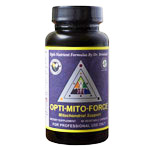
L-Carnitine and the Rest of Your Body
Research on aged rats found supplementation with high doses of
acetyl-L-carnitine (ALC) and ALA (an antioxidant) reduced deterioration.
The animals’ activity levels rose in the form of moving around more and
improved their performance on memory challenges.
The results suggest that acetyl-L-carnitine may help with cognitive
impairment and Alzheimer’s disease. Several studies show improvements or
slower declines in mental ability in people with Alzheimer's disease
who took ALC. Also consider Opti-Brain.
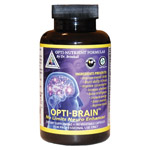
Once ALC passes through the blood-brain barrier, it helps promote
synthetization of a primary neurotransmitter in the brain known as
acetylcholine, which primarily allows for communication between nerve
cells. This in turn helps support memory, focus and alertness, improved
sleep, and muscle contractions.
L-carnitine has also been shown to play a role in regulating calcium
influx, making sure it stays out of your arteries and in your bones.
Heart weakness is a serious possible development from an L-carnitine
deficiency left unchecked. Also consider Essential DAK1K2.
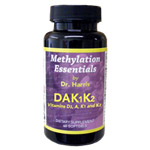
Research also shows that people with prediabetes had some improvement in
their blood sugar levels after taking ALC for two months.
Researchers from the study on “L-Carnitine and heart disease” said,
“L-carnitine reduces hypertension, hyperlipidemia, diabetic
ketoacidosis, hyperglycemia, insulin-dependent diabetes mellitus,
insulin resistance, obesity, etc. These conditions enhance
cardiovascular pathology.”
The Best, Most Absorbable (and Most Studied) Form of ALC
There are two forms of carnitine supplementation out there, but studies
show that acetyl-L-carnitine is the superior form due to its ability to
cross the blood-brain barrier. This supports brain energy and function.
Dr Harris’s constant assimilation of the literature in three languages,
and his over 40 years of clinical experience allows Optimal Health
Systems’, to create superior formulations. Essential L-Carnitine allows
the body to boost mitochondrial function, heart health, and optimal fat
burn for energy and a leaner figure.
Yours in Health and Wellness,
Marc Harris, MD, ND, PhD 3
John W Brimhall, DC, BA, BS, FIAMA, DIBAK
Doug Grant, BS, ACSM
(Only registered customers can rate)
There are no comments for this product.